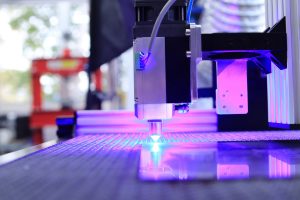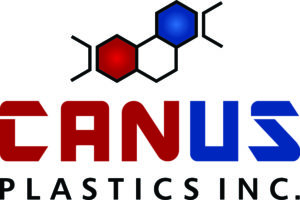Mastering the Art of CNC Machining: Unveiling the Process and Benefits for Plastic Fabrication

In our ongoing pursuit of excellence as a leading manufacturer and seller of quality plastic products in the Ottawa area, we are driven by innovative technology and advanced manufacturing techniques. One such technology that stands at the core of our expertise is CNC (Computer Numerical Control) machining, a highly precise and automated method of shaping plastic materials into intricate components. Employing CNC machining considerably enhances efficiency, minimizes waste, and optimizes the quality of plastic products which find applications across various industries, including COVID-19 countermeasures, safety and security, marketing and display cases, podiums, election boxes, windshields, tables, and benches.
CNC machining involves the use of computer-aided design (CAD) and computer-aided manufacturing (CAM) software, which control the movements and operations of specialized machining tools. The process is highly adaptable and can be employed to create complex, custom-designed components. By automating the fabrication process, CNC machining delivers consistent results, reduces human error, and accelerates manufacturing timelines.
In this in-depth blog post, we will demystify the world of CNC machining, exploring the step-by-step process of shaping plastic materials into high-quality components. We will also dive into the multitude of benefits offered by this advanced technology and its applications across various industries. Finally, we will discuss the factors to consider when implementing CNC machining in plastic fabrication projects to ensure optimal efficiency, product quality, and overall success.
Understanding the CNC Machining Process
The complexity of CNC machining is wrapped in its ability to transform digital designs into physical components. Here’s a step-by-step breakdown of the process:
- Design Creation: The process begins with creating a digital representation of the component using CAD software. This allows for detailed design customization, ensuring the final product meets the desired specifications.
- Programming the CNC Machine: The CAD design is converted into a series of machine-readable instructions through CAM software, generating the G-code. This code outlines the precise tool movements, speeds, and operations necessary to create the component.
- Tool and Material Selection: The appropriate materials and cutting tools are chosen based on the desired properties and characteristics of the final product. Careful consideration is taken to ensure compatibility and efficiency in the subsequent stages of the process.
- CNC Machining Operations: The CNC machine executes the programmed G-code, manipulating and controlling the cutting tools to shape the plastic materials according to the digital design. Through a combination of milling, turning, drilling, and other operations, the final component takes form.
- Post-Processing and Inspection: The completed component undergoes any necessary post-processing, such as polishing or deburring, to refine its surface finish. A thorough inspection ensures that the final product adheres to the quality standards and design specifications.
The Advantages of CNC Machining in Plastic Fabrication
Adopting CNC machining in the realm of plastic fabrication offers a multitude of benefits that enhance efficiency, reduce waste, and optimize product quality:
- High Precision and Accuracy: CNC machining provides unparalleled accuracy in producing intricate designs and maintaining consistency across multiple components. This level of precision is achieved through the use of computer-controlled operations, minimizing human error.
- Versatility and Customization: The adaptability of CNC machining allows for the fabrication of uniquely customized components designed to meet specific applications and requirements across a diverse range of industries.
- Enhanced Efficiency and Reduced Waste: By automating the machining process, CNC technology accelerates production timelines while significantly reducing material wastage. This results in more efficient fabrication processes and cost-effective solutions.
- Improved Quality and Reliability: The precision and consistency of CNC machining contribute to the creation of high-quality components that are both durable and reliable, ensuring superior product performance and longevity.
Applications of CNC Machining Across Industries
CNC machining has revolutionized plastic fabrication across multiple industries, driving innovation and enhancing the quality of products:
- COVID-19 Countermeasures: CNC machining has played a pivotal role in producing components for ventilators, face shields, and other personal protective equipment crucial in combating the pandemic.
- Safety and Security: In the realm of safety and security, CNC machining contributes to the fabrication of high-quality components for cutting-edge surveillance systems and secure locksets.
- Marketing and Display Cases: The versatility and customization offered by CNC machining allows for the creation of eye-catching display cases and marketing materials that effectively showcase products and attract customers.
- Podiums and Election Boxes: CNC machining ensures the integrity and stability of podiums for speaking engagements, as well as election boxes designed to safeguard the voting process.
- Windshields and Protective Covers: The precision of CNC machining is leveraged in the manufacturing of durable windshields and protective covers, providing protection against the elements and delivering long-lasting performance.
Factors to Consider When Implementing CNC Machining
To optimize the benefits of CNC machining, consider the following factors when planning your plastic fabrication projects:
- Facility Capabilities: Assess the compatibility of CNC equipment with your existing facility, taking into account space requirements and power supply.
- Material Suitability: Evaluate the properties and machinability of the plastic materials being used to ensure seamless CNC operations and quality results.
- Skilled Workforce: Ensure your team has the necessary skills and expertise to operate and maintain CNC equipment effectively.
- Quality Control and Inspection: Implement robust quality control measures to guarantee that the CNC machined components adhere to the required specifications and industry standards.
Unlock the Potential of CNC Machining for Plastic Fabrication
Embracing the power of CNC machining in plastic fabrication can transform your manufacturing processes, optimize product quality, and drive success across various industries. By understanding the intricacies of the CNC process and the factors to consider, you can effectively implement this advanced technology and achieve exceptional results for your products and business.
Our team of dedicated professionals is committed to guiding you through every stage of the CNC machining process, providing expert insights, advice, and support. Contact our team at Canus Plastics Inc. today to discover how our CNC machining expertise can elevate your plastic fabrication projects to new heights of excellence and performance.

